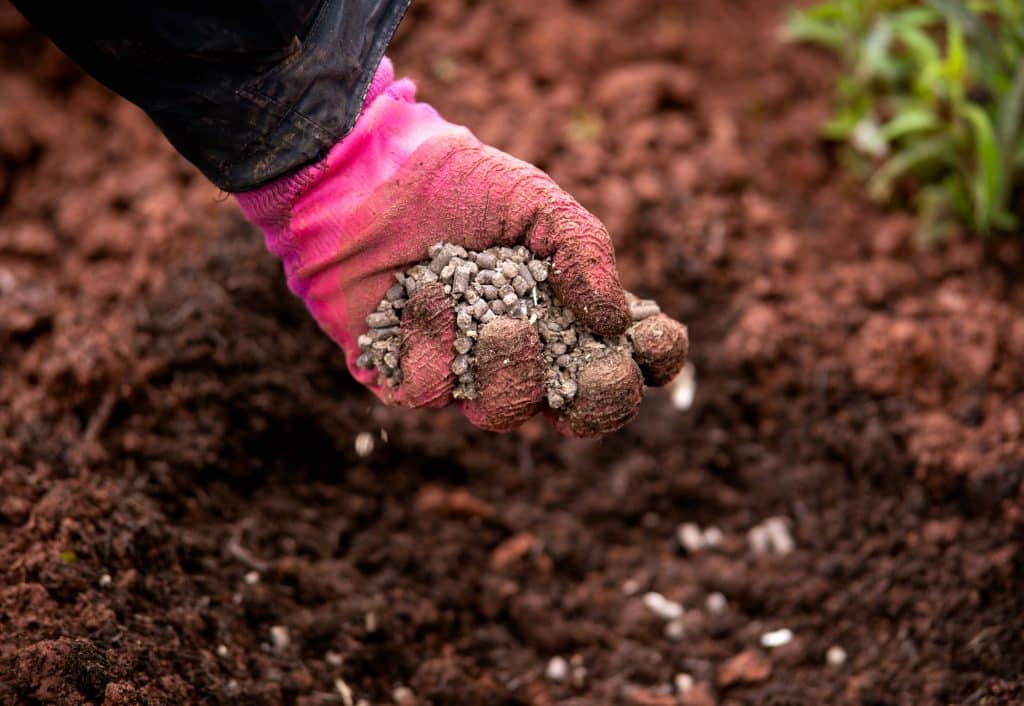Urea fertilizer is a synthetically manufactured product widely used in agriculture due to its low cost and higher nitrogen content. Poultry manure is eco-friendly and contains organic matter that improves soil structure, moisture-holding capacity, and drainage. Urea fertilizer releases nitrogen slowly compared to poultry manure which releases it quickly.

What Is Urea Fertilizer
Urea is a fertilizer with an NPK ratio perfect for farmers to improve their plants’ growth rate and quality.
Urea is a vital fertilizer with high nitrogen content and long-lasting agricultural effects.
They are popular among farmers who need to keep their fields productive for extended periods without having desired products from other sources such as manure or composting.
They change to ammonium bicarbonate when applied to the field.
The conversion of urea to ammonium bicarbonate is a natural process resulting from an enzyme called “urease.” This chemical reaction occurs after water dissolution, usually over 48 hours under field conditions.
Benefits Of Urea Fertilizer
Urea is the most common solid nitrogenous fertilizer in use worldwide, made up of 90% or more of the world’s industrial production.
It is inexpensive and rich in nitrogen, making it an excellent choice for growing plants that require this element, such as soybeans or corn.
It helps the plants grow more prominent, with more flowers and crops.
This type of nutrient encourages rapid growth. It’s great for farmers who want bigger yields.
It’s easy to store and doesn’t pose as much fire risk, making it an excellent long-term storage option.
Ureas can be mixed with other fertilizers or applied independently, depending upon your needs.
Urea may also come with acidifying properties which make it perfect for plants that love acidic soil.
Urea is an excellent choice for those who want their plants to grow faster and show new growth more often.
This type of fertilizer promotes deep green color in the leaves, giving your garden an overall healthy look with stunning appearances from every plant species.
They are perfect if you want leafy vegetables or beautiful flowers because they help rapid development, keeping them clean by removing obsolete cells.
Disadvantage Of Urea Fertilizer
Urea is only practical after 4-5 days of transformation at an average temperature.
Most of the nitrogen will volatilize during its conversion into ammonia.
However, it can be lost in high organic soil or alkaline conditions.
As a result, there’s more potential for ureic consumption by weeds than typical turf grasses (which prefer acidic soils).
It is a valuable fertilizer, but it should not be applied too much to avoid unnecessary waste and damage.
Unfortunately, too much urease can lead to tree death in fruit-producing areas, with severe consequences for the environment.
Urea needs to be converted into ammonia nitrogen for the fertilizer effect.
However, it must not come at odds with other essential fertilizers like lime or plant ash which would change its decomposition process 7 days after application.

What Is Poultry Manure
Also known as poultry droppings or chicken manure, they are a valuable organic natural fertilizer used in your garden to improve soil quality over time.
It contains high nutrients like nitrogen, phosphorus, and potassium, perfect for plants such as tomatoes or celery.
Poultry manure contains both organic and inorganic forms of nutrients.
They can be used as a natural fertilizer without additional treatment because their high organic matter content makes it easier for soil microorganisms to digest the nutrients.
Their high nitrogen content makes them more effective than other farm manures such as cow or horse dung.
Benefits Of Poultry Manure
Manure from chicken farms can be used as an organic soil amendment improving its structure while holding moisture better so you don’t have drainage problems.
It’s also good for our environment since it helps prevent erosion and reduces fertilizer leaching into water sources.
Manure helps keep the ground warm in winter and cool during summer and prevents plants from freezing or burning up due to excessive heat.
Chicken manure contains more nutrients than other types, including nitrogen, phosphorus, potassium, and calcium, needed for plant growth.
The conversion of organic matter into soil nutrients is accelerated by the presence of microbes, which can act as a food source for soil microbes and increase the diversity of biological organisms.
This helps create an environment where it is easier for plants to access nutrients from organic sources and break them down more quickly.
Poultry manure is also an excellent way to get rid of heavy clay soil.
The organic material in this fertilizer lightens up otherwise very dense grounds.
It prevents particles from bonding together, making it easy for nutrients to be released slowly over time rather than immediately after application or when exposed directly to plant roots.
Disadvantage Of Poultry Manure
The high nitrogen level in chicken droppings means that they must undergo a process before applying to plants.
Using fresh poultry manure directly can lead the fertilizer to burn or even kill your plants.
In addition, the nitrogen in poultry manure must undergo a composting or aging process before applying it as fertilizer.
Utilizing this process, we can bring nitrogen levels to use without any harm.
The composted manure we use contains some risks, but they are less than those associated with harmful chemicals.
In the worst-case scenario, contaminants may remain – like hormones or antibiotics, which could lead to health problems if consumed by humans, especially those commonly eaten raw.
It can also affect soil health because of the nutrients deposited into soils with consistent application.
For example, excess minerals may lead to algae blooms in water sources if they aren’t efficiently removed.
Even worse than these environmental effects is how copper builds up over time; this metal does nothing but burn plant roots when ingested at high enough concentrations.
Another con to using manure as fertilizer is that it can raise soil acidity over time while depleting certain essential minerals like calcium for plants.
References


